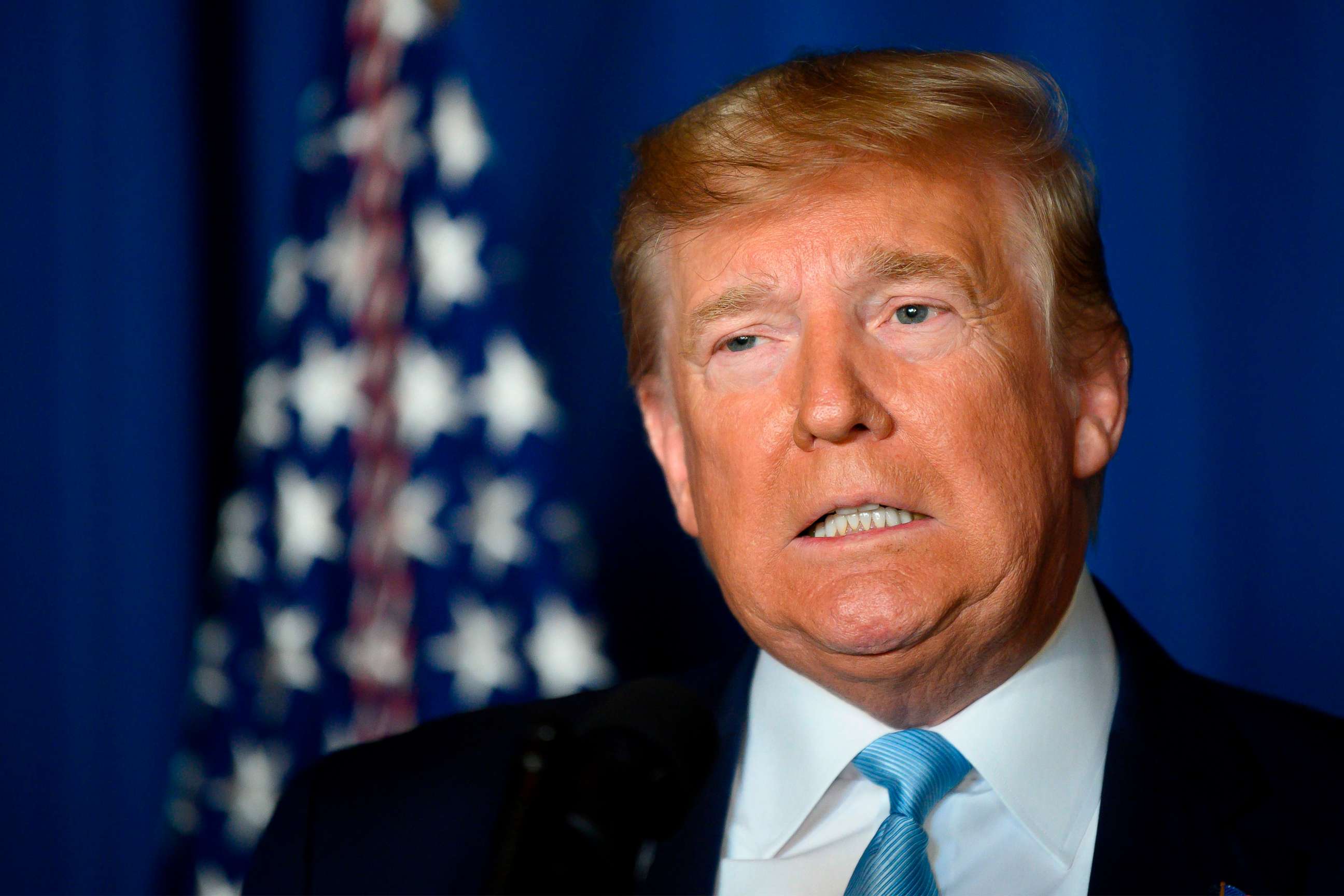Trump warns cultural sites could be targeted if Iran retaliates for Soleimani strike
"Every target that we strike will be a lawful target," Pompeo told ABC News.
President Donald Trump wrote on Twitter Saturday night that if Iran retaliates for the U.S. airstrike that killed Gen. Qassem Soleimani near Baghdad, the U.S. is prepared to "hit very fast and very hard" at 52 sites inside Iran, including some important to "the Iranian Culture."
Targeting cultural sites could be considered a war crime under international agreements to which the U.S. belongs, according to both Trump's political foes and former national security officials.
The number 52 used by Trump in his tweets also matched the number of Americans seized in the November 1979 takeover of the U.S. embassy in Tehran. They were held hostage for 444 days.
Secretary of State Mike Pompeo appeared on ABC's "This Week" Sunday and said, "The American people should know that every target that we strike will be a lawful target, and it will be a target designed with a singular mission, of protecting and defending America."
In the days since Soleimani, leader of the Islamic Revolutionary Guard Corps, was killed by U.S. drones, Iranian leaders have vowed revenge.
Anticipating possible Iranian retaliation in the region, the Pentagon dispatched 3,500 soldiers from the Army's 82nd Airborne Division to Kuwait and augmented security at the U.S. embassy in Baghdad.

Destroying cultural sites could be considered a war crime under the 1954 Hague Convention for the preservation of cultural sites and United Nations Security Council Resolution 2347, which was passed unanimously in March 2017 in response to the Islamic State's destruction of historic sites in Iraq and Syria.
That resolution "deplores and condemns the unlawful destruction of cultural heritage, inter alia destruction of religious sites and artifacts, as well as the looting and smuggling of cultural property from archaeological sites, museums, libraries, archives, and other sites, in the context of armed conflicts" and states that such acts could constitute war crimes.
"These are not legitimate military targets, and saying they are potentially opens up our cultural sites to be targets of Iran," said Mick Mulroy, an ABC News contributor and formerly the deputy assistant secretary of defense for Middle East Policy. "The statement that we are targeting culturally significant targets in Iran undermines the message to the Iranian people that we are not against them."
Trump's tweets drew criticism on social media from other former national security officials and political critics.
"The more the walls close in on this guy, the more irrational he becomes," Democratic Presidential candidate Joe Biden tweeted in response to Trump.
"For what it's worth, I find it hard to believe the Pentagon would provide Trump targeting options that include Iranian cultural sites," tweeted Colin Kahl, a former top Pentagon official in the Obama administration. "Trump may not care about the laws of war, but DoD planners and lawyers do ... and targeting cultural sites is war crime."

When reached by ABC News for comment late Saturday, a Pentagon spokesperson referred questions about Trump’s tweets to the White House.
Typically, U.S. military planners consider a "proportional" response to a provocative military act, as happened in June when Trump initially approved airstrikes on Iranian air defense systems that shot down an American drone.
Trump called off the airstrikes shortly before they were set to take place when he learned that as many as 150 Iranian casualties were possible.
The president later tweeted that the death of that number of Iranians would not be "proportionate to shooting down an unmanned drone."
ABC News' Shannon Crawford and Adia Robinson contributed to this report.




